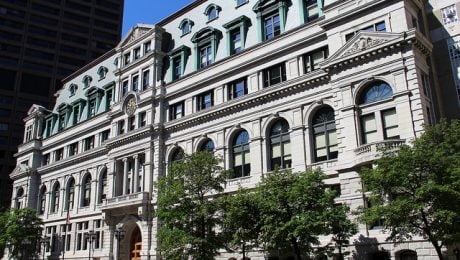Keyword: Turkey

Canadian Globe Editorial- It just gets worse in Turkey
We can reasonably hope that there won’t be any large-scale bloody purges, Stalin-style. But Turkey is likely to grow further away from Europe. The convenient travel visas to the rest of Europe, which many Turks have hoped for, may be a long time away.

Nigeria – Our students should not be victims of Turkey’s high-handedness and authoritarianism
We strongly condemn the arrest, detention and deportation of some Nigerian students from Turkey’s capital city, Istanbul, over the botched coup in the country. The harassment and intimidation of our students by the Turkish Government over a matter that does not concern them is undiplomatic and utterly reprehensible. The Turkish government should not visit the punishment for the alleged actions of its political enemies on innocent Nigerian students.

Turkish ambassador leads an unrealistic mission: bringing a reclusive Muslim cleric before Turkish courts
Although Turkey immediately blamed Gulen for the coup attempt, it took Ankara nearly six weeks to make a formal request for his extradition — and that was based on earlier alleged crimes, not for his supposed role in the coup.

Escape from Turkey’s parallel reality
As a law-abiding citizen, I knew I had done nothing wrong to be stopped at the border. But in Turkey being a journalist from Zaman media group was enough for me to be considered an “enemy of the state.” And I was the editor-in-chief of Today’s Zaman which had been brutally taken over a few days earlier, earning me a suspended jail sentence for my tweets criticizing then-Prime Minister Ahmet Davutoğlu.

Gradual transformation of Turkey into an authoritarian entity under Erdogan’s leadership
As Erdogan moved on the Islamic path of authoritarianism with political ambition of becoming of leader of Muslim world, it has adversely impacted the stability of Turkey — both internally and externally. By crushing the Gulen movement it undermined the Islamic ideational resources needed most to fight Islamic terrorism.

Turks caught up in Gulenists crackdown seek justice
When she returned to her old school to pick up some papers after being suspended, the religious affairs teacher from the Turkish town of Adapazari was braced for some awkward glances. But she was not prepared to be treated as an outcast by colleagues of eight years’ standing. “They wouldn’t even look at me,” says the mother-of-three, dabbing her cheek with a tissue. “It was as if I was a terrorist.”

Massachusetts Judges Express Fears Over Arrests, Firings Of Judges In Turkey
Former Justice Robert Cordy is worried sick about the fate of the judges he helped train in Turkey and here in Boston. They have been fired, jailed, or gone missing. “It’s devastating,” he said. “I don’t think anything has ever devastated me more than seeing this happen to people that I have come to know, love, respect. It is just beyond the pale.”

The next phase in Turkey’s political violence – third and coming coup could be the most violent
It has now been almost three months since the failed coup in Turkey. The events of July 15 were predictable, but they nevertheless mark a watershed in modern Turkish history. Still, it would be a mistake to view the coup as a single event. Turkey actually experienced two coups, but it will be the third and coming coup which could be the most violent and might very well cost Turkish President Recep Tayyip Erdoğan his life.

Turkey Is No Longer a Reliable Ally
The U.S. and Turkey have faced difficult days before, such as after Turkey’s 1974 invasion of Cyprus and the 2003 American invasion of Iraq, yet American and Turkish leaders managed to find their way back. This time will be different. The failed coup was a clarifying moment. Ankara and Washington don’t share values or interests.

40,000 people reported to authorities for being Gülen followers since July 15
As many as 40,000 people have been reported to the Ankara Police Department for being followers of the Gülen movement since a failed coup attempt on July 15. Although the movement strongly denies having any role in the corruption probe and the coup attempt, the government accuses it of having masterminded both despite the lack of any tangible evidence.

Turkish Prisons Are Filled With Professors — Like My Father
A Turkish professor who was my father’s colleague and frequently visited our house is now incapable of counting right amount of money to pay for a bottle of water at a prison canteen. He is traumatized as a result of days of harsh treatment during the interrogation. He is sharing a prison cell with my father, longtime friends, in western Turkey.

Nigeria: Our students in Turkey
Nigerian students studying in Turkey have been detained in airports after being interrogated like criminals. About 50 of them were detained in Istanbul’s Ataturk Airport for 11 hours; some were deported, even though they were bona fide students who were yet to complete their studies.




















